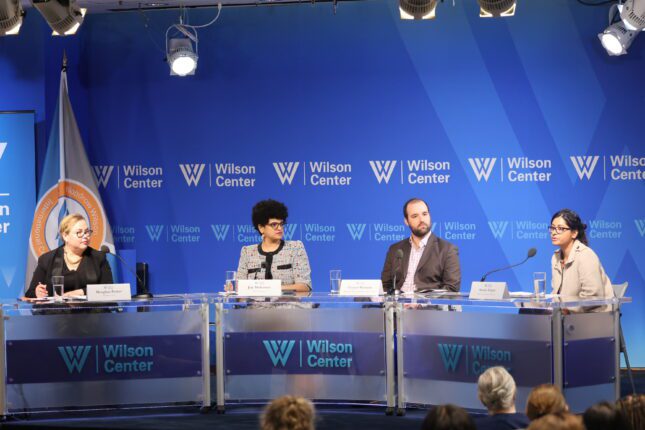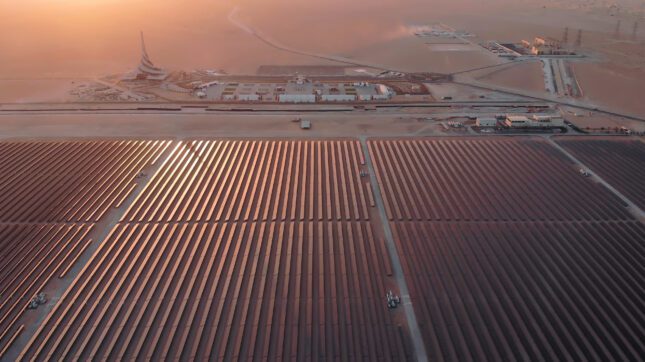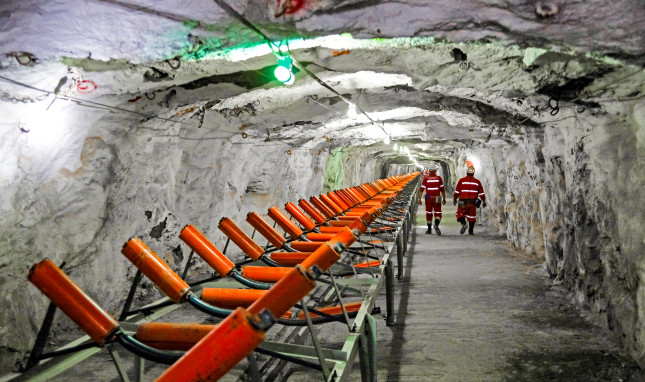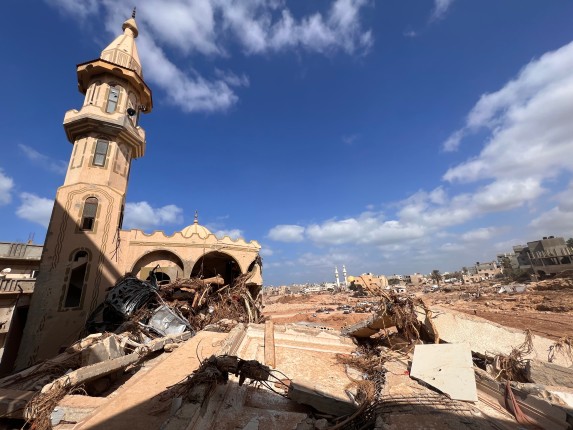Claire Doyle
Claire Doyle is Assistant Editor for New Security Beat. From 2022 until the Wilson Center’s transition to its statutory role and the closure of its programs in early 2025, Doyle was a Program Associate in the Environmental Change & Security Program. In her role, Doyle led ECSP’s portfolio on critical minerals, launched The Arc podcast series on climate justice, and spearheaded a fellowship program for emerging leaders in the MENA region focused on climate and security.
Doyle holds a master's degree in Environment and Sustainability with a concentration in Environmental Justice from the University of Michigan, Ann Arbor, and a bachelor's degree in foreign service from Georgetown University. She previously worked with the American Indian Higher Education Consortium, the Environmental Peacebuilding Association, and World Food Programme.
-
Addressing Africans’ Top Concerns Means Advancing Women’s Rights
›October 29, 2025 // By Claire DoyleFrom Kenya to Morocco to Madagascar, waves of protest have erupted across Africa. Africans—and especially young Africans—have grown increasingly frustrated with a lack of economic opportunities.
So, it is no surprise that when Afrobarometer, a pan-African, non-partisan survey research organization, asked people across 39 African countries which issues they think their governments should prioritize, people ranked unemployment as the top policy priority.
-
The 2024 Montreal Climate Security Summit: Four Takeaways
›
“I think we need to approach climate security completely differently,” said Sharon Burke, Founder and President of Ecospherics and Wilson Center Global Fellow, at the recent 2024 Montreal Climate Security Summit. “It’s not just that climate change is an opportunity cost in combat power, or that it’s effecting our bases and operating environment, or that it is an accelerant to instability. It is itself the threat.”
-
Thought-leaders and Frontline Workers in Environmental Peacebuilding: An Oral History | Carl Bruch
›Environmental Peacebuilding Oral History // New Security Broadcast // July 26, 2024 // By Claire Doyle In this episode of New Security Broadcast, ECSP’s Claire Doyle speaks with Carl Bruch, Senior Attorney and Director of International Programs at the Environmental Law Institute and the founding President of the Environmental Peacebuilding Association. Bruch is a recognized expert on environmental governance and environmental peacebuilding around the world, having worked to provide legal assistance and capacity building in dozens of countries throughout the Americas, Asia, Africa, and Europe. And he has been a key leader in the field of environmental peacebuilding, from the early conversations and visioning to the growing traction of the field today.
In this episode of New Security Broadcast, ECSP’s Claire Doyle speaks with Carl Bruch, Senior Attorney and Director of International Programs at the Environmental Law Institute and the founding President of the Environmental Peacebuilding Association. Bruch is a recognized expert on environmental governance and environmental peacebuilding around the world, having worked to provide legal assistance and capacity building in dozens of countries throughout the Americas, Asia, Africa, and Europe. And he has been a key leader in the field of environmental peacebuilding, from the early conversations and visioning to the growing traction of the field today. -
Environmental Journalists on the Frontlines of Democracy
›
From record-breaking heat in 2023 to alarming levels of biodiversity loss, our global climate and environmental crises pose a growing threat to human and planetary wellbeing. But even as these crises intensify, the work of documenting them has itself become increasingly risky.
Across the world, threats and attacks against journalists who report on environmental degradation and investigate environmental crimes are on the rise. A recent UNESCO survey reported 300 attacks against environmental journalists in the last five years—a 42 percent jump from the previous 5-year period.
-
Thought-leaders and Frontline Workers in Environmental Peacebuilding: An Oral History | Dr. Dhanasree Jayaram
›Environmental Peacebuilding Oral History // New Security Broadcast // May 10, 2024 // By Claire Doyle
In today’s episode of New Security Broadcast, ECSP’s Claire Doyle speaks with Dr. Dhanasree Jayaram, Program Manager at Climate Diplomacy and Assistant Professor at the Manipal Academy of Higher Education in India. Dr. Jayaram describes what environmental peacebuilding looks like in the context of South Asia, how climate diplomacy connects to environmental peacebuilding, and how the field has evolved. In looking at the future of environmental peacebuilding, she also raises insights and questions that an environmental peacebuilding lens can help us consider as we push forward on climate action.
-
Climate Priorities in the Middle East and North Africa: Takeaways from a New Occasional Paper
›
In a new Occasional Paper published by the Wilson Center’s Middle East Program and ECSP, journalist Taylor Luck examines the climate priorities of wealthy and middle-income countries in the Middle East and North Africa (MENA). Luck analyzes the policies adopted by MENA states, highlighting gaps and offering recommendations to strengthen climate action in a region strained by both instability and climate change.
-
The State of Play for Critical Mineral Policies: A Berlin Climate Security Conference Roundtable
›
The global transition to low-carbon energy is spurring new momentum to produce and secure the mineral inputs necessary for renewable technologies. Yet meeting demand may prove difficult. From electric cars to wind turbines, essential renewable energy technologies often require more minerals than fossil fuel-powered infrastructure. The International Energy Agency (IEA) projects that efforts to meet the goals of the Paris Agreement could lead to a fourfold increase in mineral demand by 2040.
-
Q&A: Peter Schwartzstein on Conflict & Climate in Libya
›
In the wake of Storm Daniel, which hit Libya in September 2023, ECSP spoke with Wilson Center Global Fellow Peter Schwartzstein about the storm’s tragic fallout and its connection to conflict. As an environmental journalist and consultant, Schwartzstein has written extensively about the climate-conflict nexus and other environmental and geopolitical issues, primarily in the Middle East, North and East Africa.


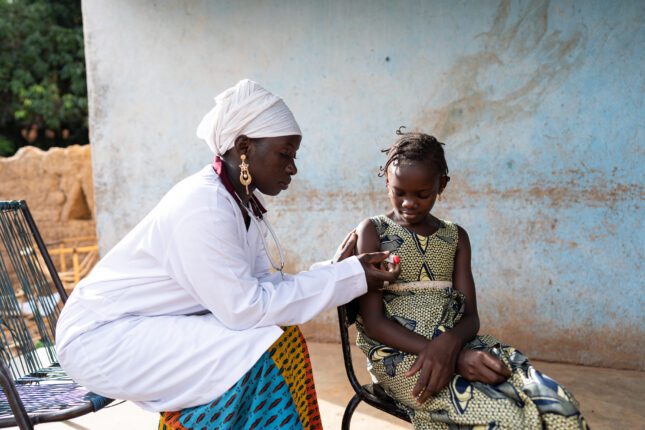

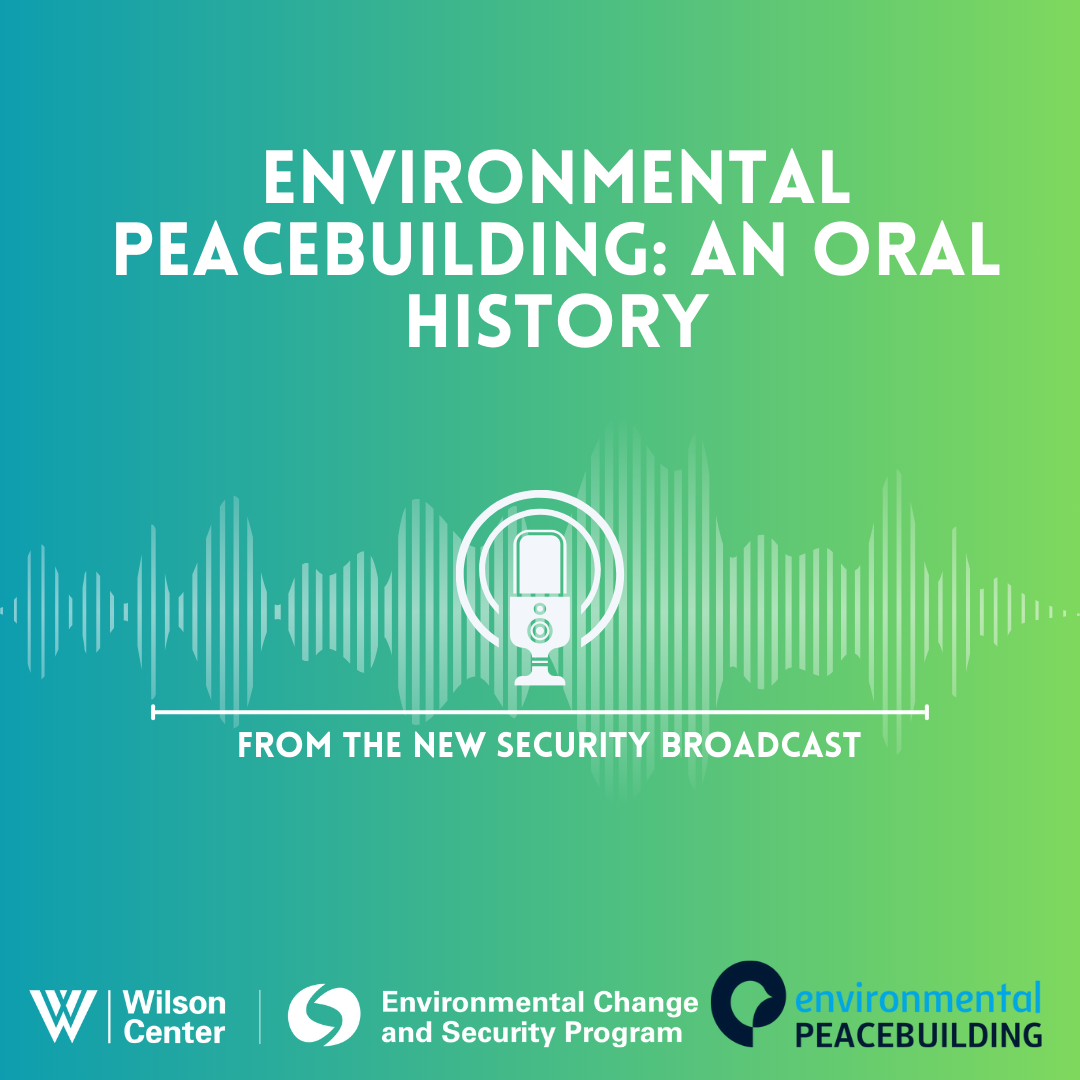 In this episode of New Security Broadcast, ECSP’s Claire Doyle speaks with
In this episode of New Security Broadcast, ECSP’s Claire Doyle speaks with 